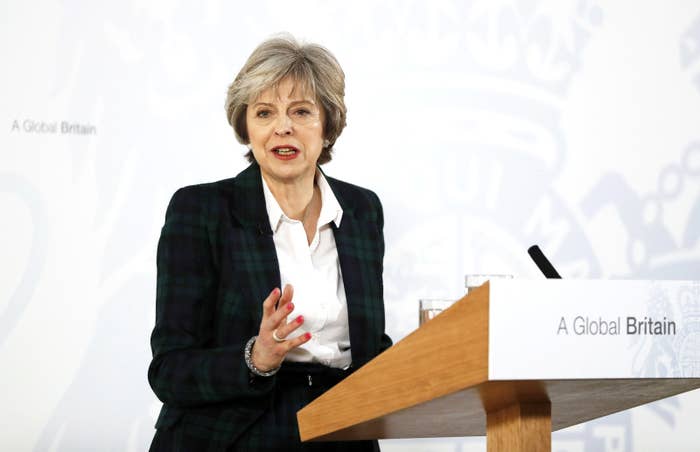
Theresa May has used her keynote speech on Britain's goals for Brexit to signal that the UK's security cooperation with EU nations will be part of negotiations between the two parties.
In a wide-ranging speech confirming the UK plans to leave the European single market, the prime minister said Britain and Europe shared "interests and values" as well as common enemies and threats.
However, while May highlighted the importance of continued cooperation and pledged the UK would honour its current commitments – generally made through NATO, including troop deployments in Estonia, Poland, and Romania – she declined to separate future security cooperation from the EU negotiations.
Setting out three reasons she was confident the UK could get a good deal on Brexit, she first highlighted her belief that EU leaders wanted a "positive relationship" with the UK, and then said a good deal was the economically rational thing for all sides.
She then said: "The third and final reason I believe we can come to the right agreement is that cooperation between Britain and the EU is needed not just when it comes to trade but when it comes to our security too."
May then set out the UK's strong security position and "unique" capabilities.
"Britain and France are Europe’s only two nuclear powers," she said. "We are the only two European countries with permanent seats on the United Nations Security Council. Britain’s armed forces are a crucial part of Europe’s collective defence.
"And our intelligence capabilities – unique in Europe – have already saved countless lives in very many terrorist plots that have been thwarted in countries across our continent. After Brexit, Britain wants to be a good friend and neighbour in every way, and that includes defending the safety and security of all of our citizens."
May's inclusion of the UK's security and intelligence capabilities in negotiation gives her a potential trump card in talks – this area is widely seen as one of the UK's strongest hands in negotiations – but flies in the face of warnings from some of the UK's most respected defence experts.
Last week a report from the respected defence think tank RUSI cautioned May against using security cooperation as a bargaining chip in talks.
“It would be seen – both by allies and potential adversaries – as suggesting that the UK’s move towards isolationism was more deep seated than previously feared,” the report warned.
“The reassurance value of the UK’s contribution to collective defence rests, to a considerable extent, on its reliability. The government would have to think very carefully before calling this, and therefore its wider commitment to NATO, into question.”
